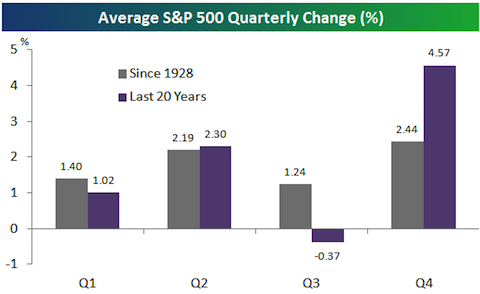7 Survival Tips for a Volatile Market CBS News
Post on: 11 Август, 2015 No Comment

Last Updated Sep 26, 2011 10:56 AM EDT
With triple-digit swings on the Dow almost a daily occurrence and stocks suffering their worst performance since 2008, investors are understandably emotionally raw at this point. But that just makes keeping your twitchy impulses in check more important than ever.
Isn’t that the entire point of having a long-term plan in the first place?
- Markets don’t always react the way experts predict. The recent downgrade by Standard & Poor’s of the U.S. government’s credit rating, following protracted and painful negotiations on extending its debt ceiling, actually led to a strengthening in Treasury bonds, Parker says.
- Quitting stocks now is like running away from a sale. While prices have been discounted to reflect higher risk, that’s another way of saying expected returns are higher, writes Parker. And while the media headlines proclaim that ‘investors are dumping stocks,’ remember someone is buying them. Those people are often the long-term investors.
- Recoveries can come as quickly and violently as corrections. For instance, in March 2009 — when market sentiment was last this bad — the S&P 500 turned and put in seven consecutive months of gains totaling almost 80 percent, Parker writes. This is not to predict that a similarly vertically shaped recovery is in the cards this time, but it is a reminder of the dangers for long-term investors of turning paper losses into real ones and paying for the risk without waiting around for the recovery.
- Never forget the power of diversification. While equity markets have had a rocky time in 2011, fixed income markets have flourished — making the overall losses to balanced fund investors a little more bearable, says Parker. Diversification spreads risk and can lessen the bumps in the road, he adds.
- Markets and economies are different things. The world economy is forever changing, and new forces are replacing old ones, Parker writes. As the IMF noted recently, while advanced economies seek to repair public and financial balance sheets, emerging market economies are thriving. A globally diversified portfolio takes account of these shifts, he says.
- Nothing lasts forever. Just as smart investors temper their enthusiasm in booms, they keep a reserve of optimism during busts, writes Parker. And just as loading up on risk when prices are high can leave you exposed to a correction, dumping risk altogether when prices are low means you can miss the turn when it comes.
- As always in life, moderation is a good policy. At some point, value will re-emerge, risk appetites will re-awaken, and for those who acknowledged their emotions without acting on them, relief will replace anxiety, Parker says.

Please, please, please don’t forget — past waves of selling show that long-term investors who keep their heads through the storm fare better than those who dump stocks into the maw of the panic.
2011 CBS Interactive Inc. All Rights Reserved.














